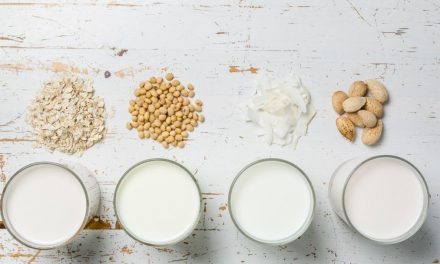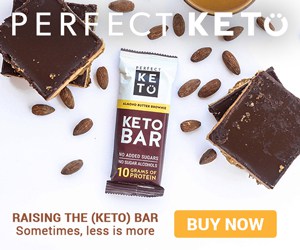Beer is often referred to as bread in liquid form, because of the massive amount of carbohydrates.
Switching to low carb beer when following the ketogenic diet is a must, if you want to continue to lose weight and remain in ketosis.
We take a look at the most popular beers on the market and which ones are a good choice for low carb beer…
Michelob Ultra

Michelob Ultra is a great low carb beer for the keto diet. It contains only 2.6 grams of carbs.
The Michelob Ultra ABV is only at 4.2%, which is lower than the standard ABV of 5%.
If you want something lower, you can try the Michelob Ultra Gold, which boasts of only 85 calories with 2.5 grams carbs and 3.8% ABV calories.
It has a very light texture and flavor, so if you are a serious beer drinker, you might find the taste not to your liking.
It is a light beer that you can drink while eating peanuts, but definitely not with steaks.
Both Michelob Ultra low carb beer varieties come from a blend of organic grains to give you a smooth and satisfying taste.
Best served a bit warm to bring out the full body and flavor.
Bud Light Carbs

Bud Light alcohol content is only 4.2% on a 12 oz. serving, which is why many consider this beer a light beer.
The bud light calories however, is 110 which is 7 calories higher than normal for a light beer.
This is due to carbs in bud light of 6.6 grams.
The beer has a light thin texture but has a smooth flavor, making it easy to drink.
Another factor is its cheap price, and with an assortment of sizes and options you can choose from.
These easily put Bud Light as the top light beer sold in the market. However, if you are on a strict keto diet, Bud Light is not really considered a low carb beer.
Bud Select 55
Bud select 55 is a better choice as a low carb beer, however, it has very little flavor. The taste has been referred to as “highly carbonated light grain meets mineral water”.
At only 55 calories and 1.9 grams of carbs Bud Select 55 is a suitable low carb beer for the keto diet.
We checked out the reviews over at beer advocate, some thought Bud Select 55 was better than Michelob Ultra.
Either way you look at it, if you’re trying to lose weight and follow a low carb lifestyle, no low carb beer is going to taste like a full strength craft brew.
Miller Lite Carbs

Miller Lite has been described as a light refreshing low carb beer that tastes like beer and has a stronger than expected aftertaste.
Miller Lite calories is only 96 kcal, which is definitely low compared to the standard for a 12 oz. serving size.
Miller Lite carbs is only 3.2 grams and it has an ABV of 4.5%.
The Miller Lite ABV is a bit higher than most lite beers, but still falls within the standard ABV of 5%.
Miller Lite is another suitable choice of low carb beer for that won’t blow out your net carbs on the keto diet.
Coors Light Carbs

Coors was founded by a couple of Germans who migrated to Golden, Colorado back in 1873.
Coors has a refreshing and crisp taste that goes well with light meals and has a dry bitter finish.
Calories in Coors Light is 102 kcal in every 12 oz. size serving.
Since it was first launched, carbs in Coors Light has been maintained at 5 grams.
It’s not the lowest carb beer, so if you’re following a strict keto diet this is not a low carb beer you can enjoy multiple bottles of at once.
The Coors Light ABV is only 4.2%, giving you less calories than the regular beer.
The calories, carbs, and alcohol content combination gives the Coors Light enough heft to it, making you feel you are not drinking flavored water with your meal.
Corona Premier Carbs

Corona Premier is the latest in the line of Corona beers launched after 29 years.
It has a refined, crisp taste, making it it the smoothest, most drinkable light beer in the Corona line.
It has a fruit-honey aroma, and a touch of malt adds to its pleasant taste of sweetness and dry clean finish.
The Corona Premier carbs is the lowest at 2.6 grams in the Corona line, much lower than the Corona Light carbs of 4.8 grams.
If you are watching your weight, the first thing you look at would be alcohol content and Corona Premier alcohol content is only at 4.0% ABV and calories of only 90 kcal, one of the lowest calorie count in the Light beer category.
Carbs in Guinness

Guinness originated in Dublin, Ireland from Arthur Guinness’ brewery in 1759.
This deep colored caramel flavor Irish Stout beer is made from barley, water, hops, and a special ale yeast.
Unlike in other beers, the barley is roasted but it is not malted.
The roasted barley accounts for its reddish dark color, and in this instance, dark does not mean high in calories.
Guinness is not a low carb beer, coming in at around 10 grams of carbs per 12oz serving. The alcohol content is 4.2% ABV on the Draught type.
If you’re going to drink Guinness, savor it, as one serving is half your net daily carbs.
Busch Light Carbs

In the light beer category, Busch Light has the strongest flavor compared with other brands.
When it first came out, Busch Light alcohol content was at 4.2%, carbs of 6.7 grams, and calorie of 110 kcal.
Refinements were made and now carbs in Busch Light is down to 3.2 grams.
Strict low carb, low calorie dieters can now enjoy Busch Light calories at 95 kcal. They managed also to bring down the Busch Light ABV to 4.1%.
Despite the changes in its formulation, Busch Light remains a low carb, medium-bodied beer, giving balance to the flavor of your food.
It remains fairly-light, so you can enjoy drinking during hot summer days.
Carbs in Stella Artois

Despite its name, Stella Artois is a Belgium beer and not French.
According to the USDA, approximately 63% of Stella Artois calories is from alcohol content, 33% from carbs, and 5% from protein (figures rounded off).
The total carbs in Stella Artois is 12.8 grams, unfortunately, making this not a good choice as a low carb beer.
If calories is 153 kcal per 12 oz. serving, then Stella Artois carbs is about 12.6 grams from grains and about 14 grams from alcohol content, which is high if you are on a ketogenic diet.
The alcohol content of Stella Artois is also pegged at 5.7% ABV.
Yuengling Light Carbs

Yuengling brand brewery is a family owned and operated corporation, and one of America’s oldest breweries.
Their Yuengling Light lager only has 99 calories but their most recent in the light line of beer is the Yuengling Flight.
A refreshing, clean, crisp light beer with a calorie count of 95 kcal and alcohol content of 4.2% ABV.
The carbs in Yuengling Flight is only 2.6 grams on a 12 oz. serving size.
This light lager is available in 12 oz., 16 oz., and 24 oz. size can and bottles.
Yuengling carbs of other Yuengling products like the Yuengling Light Beer and Traditional Yuengling Beer are relatively low compared to other brands of the same line.
Yuengling is brewed in their three breweries across the US, and pairs great with grilled food.
Other Low Carb Beer Choices

If you are the adventurous type, there are many other light beer brands available in the market that you can try.
From Blue Moon Brewing Company comes their first ever low calorie, low carb beer. Blue Moon carbs is only 3.6 grams with 4.0% ABV and total calorie count of 95 kcal.
If you find Coors Light a bit expensive, you can try Keystone Light, which is also from the same brewer of Coors. Keystone Light carbs 12 oz. contains only 5 gram of carbs with a total of 104 kcal.
Another light, well-balanced beer with a malty aroma is Heineken Light. A 12 oz. serving only contains 3.3% ABV and total 99 kcal per serving. However, Heineken Light carbs is a bit on the high side at 6.8 grams.
Drinking Beer on a Low Carb Diet

Being on a low carb diet like the Ketogenic diet does not mean curtailing your desire to drink beer.
Big brewers are constantly researching ways to improve their formulation.
They are trying to cut-down carbohydrate and alcohol content.
However, some brewers sacrifice taste and texture to produce their low carb beer.
You have the option to use low carb keto friendly beer alternatives like homemade shandy, carbonated waters flavored with extracts and bitters, diet soda beers like ginger beer and root beer, or low carb low alcohol seltzer drinks.
Is There a Zero Carb Beer?
If you want a zero-carb beer, you can try mixing hard liquor like bourbon, whiskey or scotch with carbonated water. The mixture produces a bitter, smoky alcoholic drink without the carbs.
If you prefer commercial beers, the brand with the lowest carb beers are Thin Ice with a net carb of 1 gram and Bud Select 55 with a net carb of 1.9 grams.
Low Carb Craft Beer

Craft beer is simply beer brewed by an independent, traditional and small brewing company.
Usually, these are local master brewers who love beer and produce only small batches using hand-selected ingredients.
Thus, craft beers taste better than mass produced beers. Craft beer manufacturers have joined the bandwagon, and are now producing low carb craft beer.
It is not surprising that many beer drinkers consider craft beer as the best tasting low carb beer on the market today.
The carb content in craft beer ranges from 2 grams to 5 grams, although some brands go as high as 6 grams.
The craft beer market is steadily growing, and giving the light beers and regular beers a run for their money.
In craft beer, the lowest carb beer is Prime Time by Bridge Brewing Company with only 1.5 grams.
Most popular domestic low carb beer is the Michelob Ultra with 2.6 grams of carbs on a 12 oz. bottle serving.
It retains its fuller taste despite the light formulation.
Your Choice of Light Beer
Even if you are a moderate drinker, the calorie content of regular beer is enough to throw you off your diet and produce a beer belly.
A typical 12 oz. beer contains up to 14 grams of carbs while your standard light type beer has no more than 5 grams, which is perfect if you are on ketogenic diet.
Is There A Low Carb Non Alcoholic Beer?
Unfortunately, no.
You can have low carb to zero carb and you can have zero alcohol or non-alcoholic beer, but not both low carb and non-alcoholic.
Non-alcoholic and regular beers are almost the same in terms of total calorie count. They only differ in alcohol and carb content.
Once you remove the alcohol, the beer turns flat and loses its flavor.
To carbonate and add flavor, brewers use carbon dioxide and add more sugar to make the taste palatable. Adding sugar increases the carbohydrates.
So technically, you are just substituting sugar to the alcohol content.
The ABV in Beer

ABV stands for alcohol by volume or simply the alcohol content of your beer.
So why is it important? Just imagine how alcohol affects you. The higher the alcohol content, the more impact it will have on your body.
The more alcohol there is, the faster you will get drunk. Excessive alcohol can alter your physical and mental state.
A high ABV can affect ketosis. Alcohol takes precedence over fat when burning calories.
The liver processes the alcohol first because it considers alcohol as toxin.
In ketosis, fat is your major source of calories, but once your liver finds the alcohol in your body, it will stop processing fat and instead process the alcohol first.
Comparing Calories and Carbs in Beer

Most often, beer drinkers who are on a diet count only the calories based on the ABV or alcohol by volume percentage.
ABV, as discussed previously, is the alcohol content of your beer. To get the approximate calorie from your alcohol content, you can use this formula:
Calorie= (ABV% x 2.5)* fluid oz.
So a 12 oz. beer with 5% ABV will have 150 calories. However, this is not your total calorie count.
Beer is made from barley and possibly other grains, fruits, and vegetables.
These ingredients, especially grains, contain carbohydrates, fats and proteins, which are converted into calories.
Every gram of carbs and protein amounts to 4 calories, and every gram of fat has an equivalent amount of 9 calories.
So when you are computing for total calories of beer, you need to add the calorie content of the macronutrients of the beer ingredients, and the calorie content of your ABV.
You would need more components if you are making homemade beer, but the basic formula here is something you can use if you want to double check the calorie content of your favorite beer.
By ingredient alone, you already know that beer is not low-carb or low calorie.
If you are on a strict ketogenic diet, your daily carb consumption is limited to 20 grams per day. A less strict one can consume up to 50 grams a day.
That is not a lot considering that a half cup of pearl barley has net carbs of 19 grams (total carbs – 24 grams less 5 grams fiber). Note that beer contains not just barley but other grains as well.
Then, there is the alcohol content. You get 7 calories for every gram of alcohol you consume, so the higher the alcohol content, the more calories you consume.
The less alcohol content, the lower the calorie count.
Can You Drink Beer on the Keto Diet?

Beer ranks number three in the top ten list of most preferred beverages by Americans, following tea and coffee.
In one survey conducted, 95% of Americans enjoy drinking beer during picnics or BBQ, while 76% enjoy beer while relaxing near a lake, pool or ocean.
They also base their preference on taste as being the top reason, followed by price, style of beer and the brewer.
Beer is the only beverage that has a festival celebrated worldwide – the Oktoberfest.
Beer is brewed by slow fermentation using four basic ingredients: malted grains (barley), hops, water and yeast. The malted grains are the main source of aroma, flavor and color of the beer.
To add more flavor and color, brewers also add fruits, vegetables, sugars, and other grains (like rye, wheat, oats, sorghum, corn and rice). All of which are not good choices for the keto diet.
The calorie and carb count count really depends on the type of beer and brewery that created the beer.
Following the keto diet doesn’t mean you have to give up beer, it simply means making a different choice of beer that is more conducive to a low carb or ketogenic lifestyle.
The beer industry is making a conscious effort to give consumers a healthier choice when it comes to low carb beers.
The beer market has gone a long way in terms of innovation and formulation.
They are keeping up with the fast changing taste and preference of consumers, but still try to maintain the root of their foundation.
















